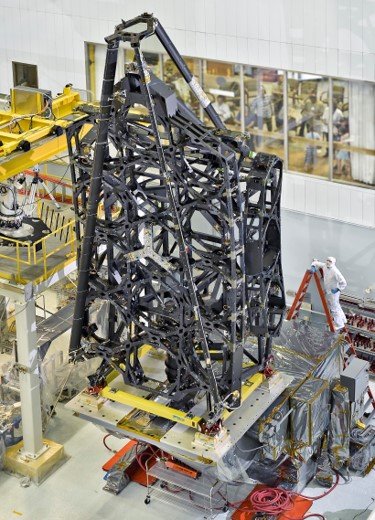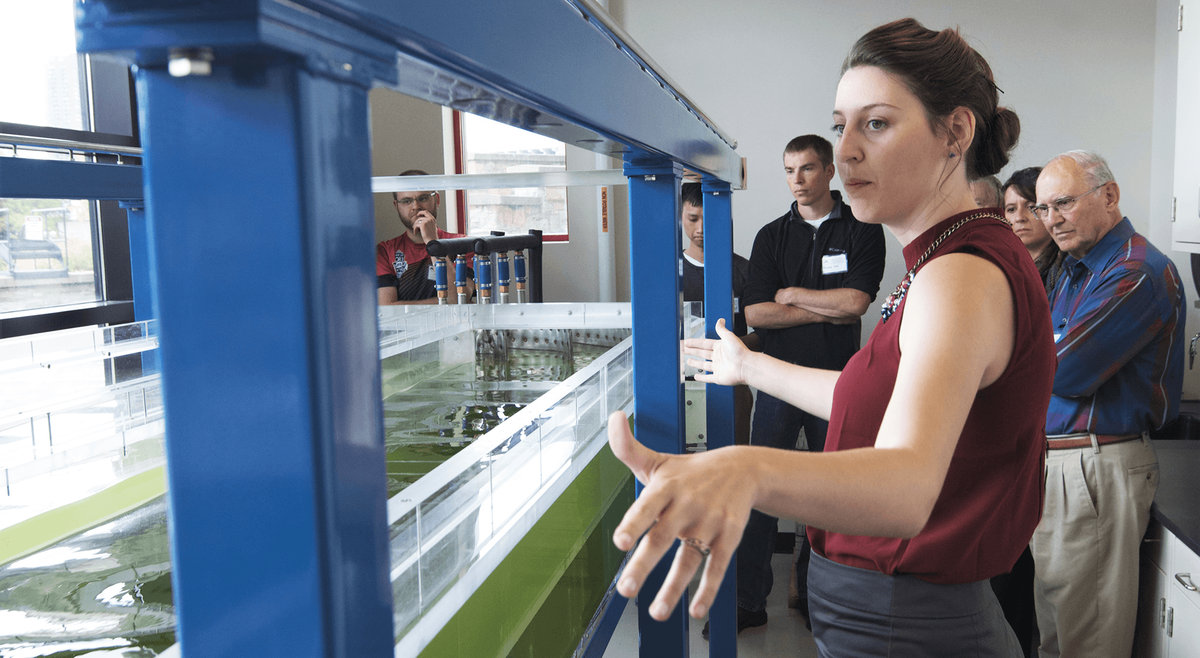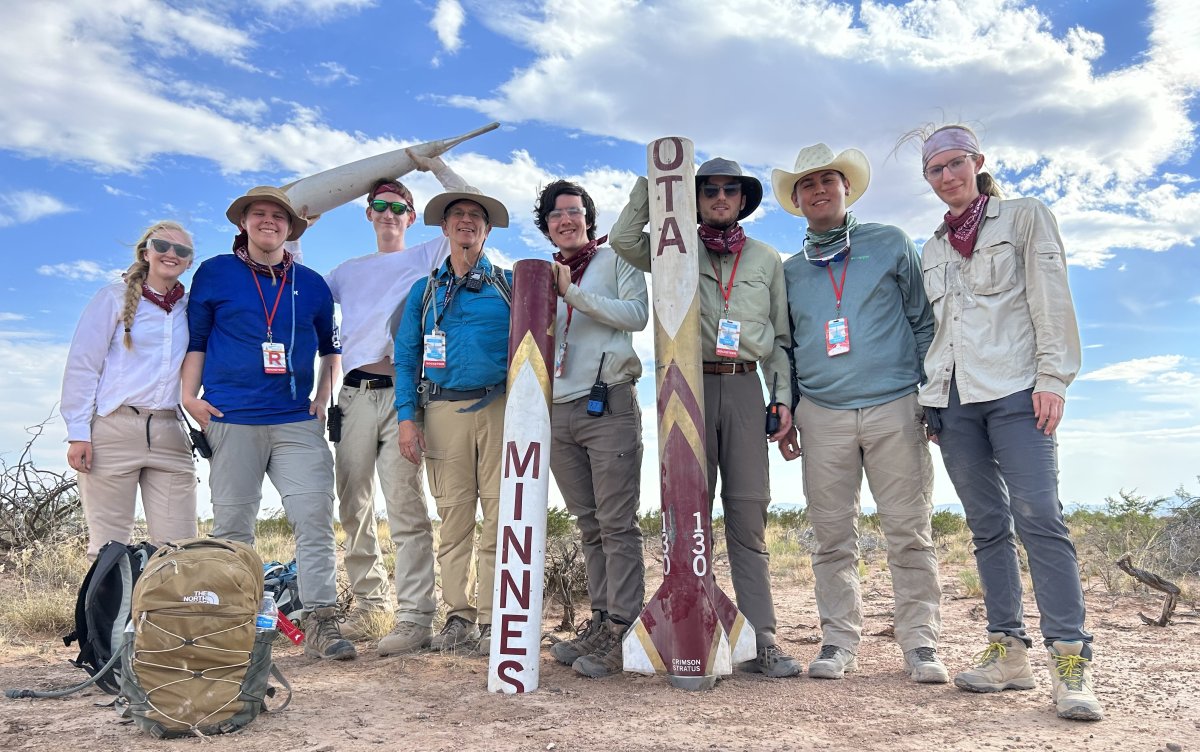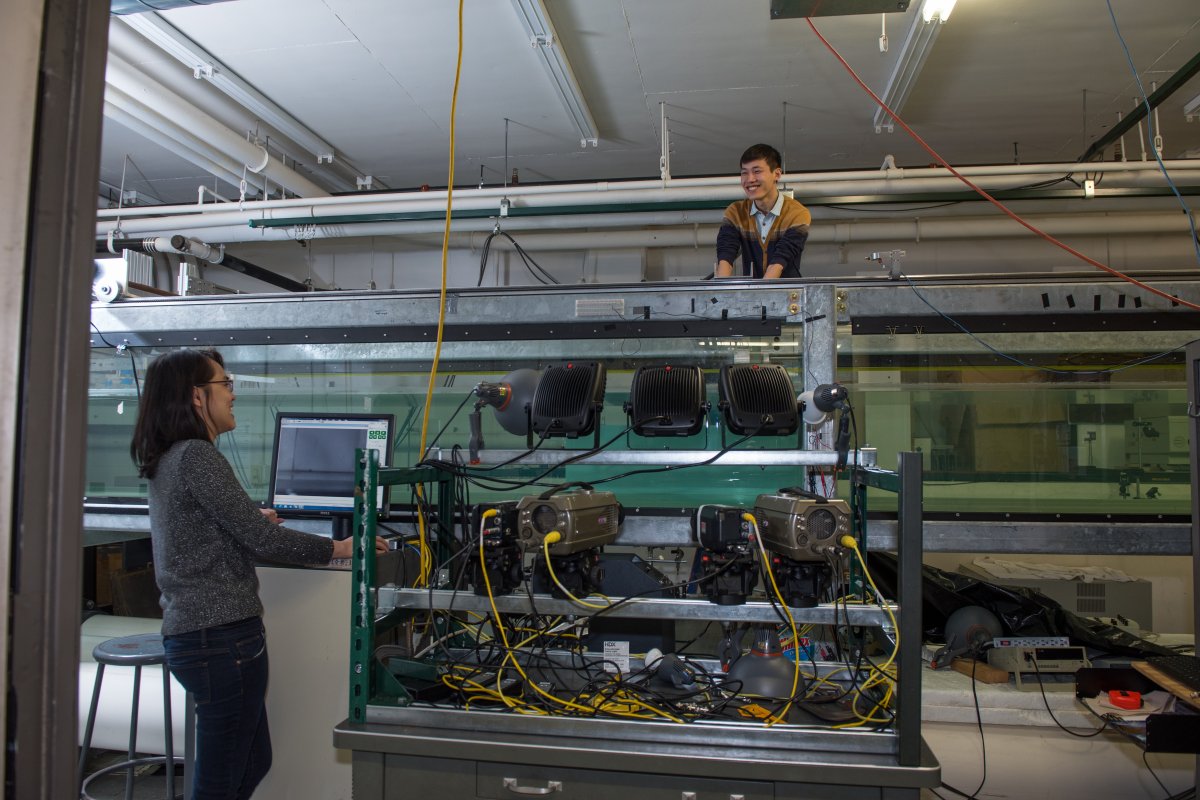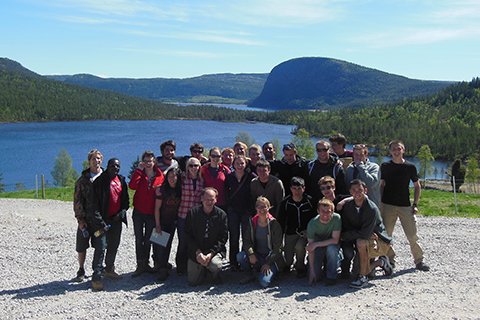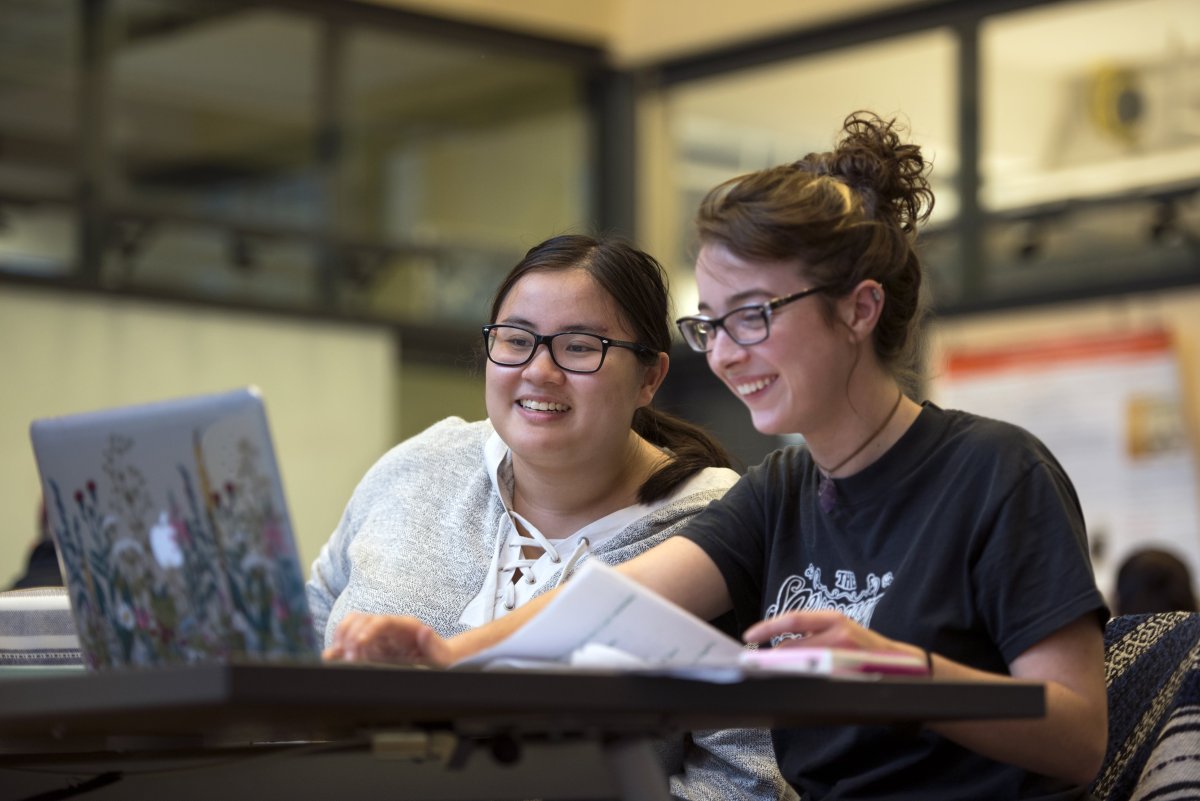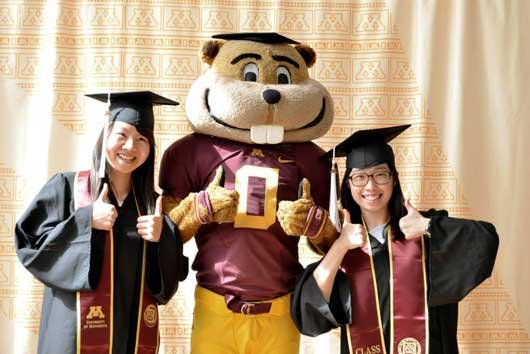Prospective Undergraduates
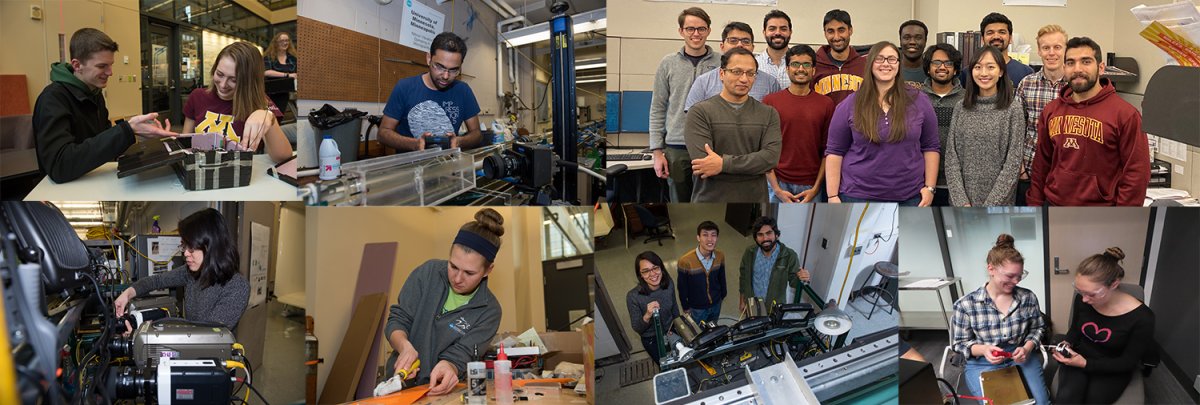
What is Aerospace Engineering?
Aerospace engineering is a specialized area of engineering focusing on the design, development, testing, and production of aircraft, spacecraft, and related systems. It is a multidisciplinary field that combines principles from various engineering disciplines, to create vehicles and technologies operating within the Earth's atmosphere and outer space.
Why Aerospace Engineering?
- Aerospace engineering is at the forefront of cutting-edge technology and innovation. Current areas of advancement include hypersonics (flight at 5 times the speed of sound), advanced air mobility ("flying cars"), sustainable aviation, advanced materials, private space enterprises and more.
- The aerospace industry continues to grow and there is a consistent demand for skilled aerospace engineers
- Aerospace engineering offers a wide range of career paths including aircraft design, spacecraft development, propulsion systems, avionics, aeronautical and space-related research and much more.
- Aerospace engineering is a multidisciplinary field that enables careers in related areas such as robotics, the medical devices industry, the auto industry, etc.
What will I study?
Aerospace vehicles require lightweight materials that can withstand extreme conditions. By understanding the properties of materials, engineers can develop lightweight yet strong components that enhance the performance and fuel efficiency of aircraft and spacecraft. Furthermore, aerospace vehicles experience intense forces during flight, including vibrations, heat, and pressure changes. Understanding materials' properties helps in selecting and designing structures that can withstand these forces without compromising safety or performance.
Understanding how fluids (such as air or gases) behave around aircraft or spacecraft is fundamental for designing efficient shapes and structures. Aerodynamics ( a specialized subset of fluid mechanics) helps engineers optimize lift, reduce drag, and enhance maneuverability, which are vital for flight performance. In addition, fluid mechanics principles are at the core of designing propulsion systems like jet engines or rockets. Knowledge of how fluids move through turbines, nozzles, and combustion chambers is essential for optimizing thrust, fuel efficiency, and overall performance.
The study of dynamics and control is integral to aerospace engineering as it enables engineers to design, develop, and operate aerospace vehicles with precise maneuverability, stability, safety, and performance across a wide range of conditions and environments. Understanding the dynamics of flight is essential for ensuring stable and controlled movement of aircraft.
Another area of dynamics that is a part of the aerospace engineering program is orbital mechanics. This deals with the design of space missions including satellite operations and interplanetary transfers.
What will I learn?
+
How do I know if aerospace engineering is a good fit for me?
Are you intrigued by the concept of flight? Are you curious about airplanes, helicopters, and drones? Are you fascinated by the idea of space flight, rockets, spacecraft, satellites, and interplanetary travel? If you answered yes to any of the above questions, you might find that aerospace engineering is a good fit for you
+
What exactly does an aerospace engineer do?
Aerospace engineers design, develop, test, and build aircraft, spacecraft, and related systems. They work on various aspects, including aerodynamics, propulsion systems, structural design, materials, control systems, and avionics.
+
Are there any scholarships available for aerospace engineering students?
Yes. Each year, the Department of Aerospace Engineering and Mechanics awards a number of scholarships to its students. In the academic year 2023-24, for example, the overall amount will be about $100,000. Scholarships are awarded on a variety of criteria, including academic achievement, participation in extra-curricular activities, representation, or financial need. See AEM's Scholarship and Financial Aid page.
+
What skills are important for success in aerospace engineering?
Aerospace engineers need strong skills in mathematics, physics, and computer programming. Additionally, problem-solving, critical thinking, creativity, and teamwork are essential skills in this field.
+
What are some exciting recent developments in aerospace engineering?
The rise of commercial space travel with companies like SpaceX and Blue Origin, advancements in hypersonic flight, the ongoing development of autonomous aircraft and drones, and the beginning introduction of artificial intelligence into the area are some exciting developments that create demand for aerospace engineers.
+
What are some career paths for aerospace engineers after graduation?
Aerospace engineers can work in various industries, including aerospace and defense companies, government agencies (NASA, FAA, etc.), research institutions, and space exploration companies like SpaceX or Blue Origin. Many aerospace engineers use their multidisciplinary skills to enters fields such as the auto industry, robotics, medical devices companies, etc.
+
I like airplanes, I'm fascinated by space technology, but I wonder if I'm still better off studying mechanical engineering because it is “broader”?
Here are some things to consider:
If you have a strong interest in airplanes and spacecraft, and you envision yourself working on projects related to aerospace technology and space exploration, then aerospace engineering might be the more suitable choice. Following your passion can lead to a more fulfilling and enjoyable career.
Even though mechanical engineering covers a wide range of applications, you will typically need to specialize in a specific field such as manufacturing, automotive, robotics, etc. If your interest is in aircraft and spacecraft, aerospace engineering allows you to specialize directly in those areas.
+
Who will I hang out with?
Learn together, play together
Success is not a solo venture. In our college, you will meet people who push you, guide you, and inspire you on a daily basis.
Our University of Minnesota science and engineering community is vibrant and international. Join us! Make new friends. Open your minds, and hearts, to new perspectives.
At CSE, we aim to create an inclusive community. Learn more at the College's website.
+
Will I get a job?
Aerospace Engineering graduates are highly successful. Virtually all students found a job or went to grad school within six months of graduation (2021-22)*, a 95.7% placement rate. The average starting salary was $76,960.
Top companies that hired aerospace engineering students in 2021 - 22:
Aster Labs (Research Scientist)
Blue Origin, LLC
Boeing (Airworthiness Engineer)
Boston Scientific (R&D Engineer)
Caterpillar (Rotational Development Engineer)
Cirrus Aircraft (Aircraft Systems Engineer)
Collins Aerospace (Mechanical Engineer)
Honeywell (Software Engineer)
Medtronic (Associate Quality Engineer)
Raytheon (Engineer I, Systems Engineering)
Seagate (Sustaining Engineer)
Space X (Integration and Test Engineer)
Tesla (Control Engineer)
The Toro Company (Test Engineer I)
*Data includes Fall 2021, Spring 2022, and Summer 2022 graduates.
#FutureGopher
A bachelor's degree from the Department of Aerospace Engineering and Mechanics allows students to enter and sustain the practice of aerospace engineering and related fields, or to pursue advanced studies.
